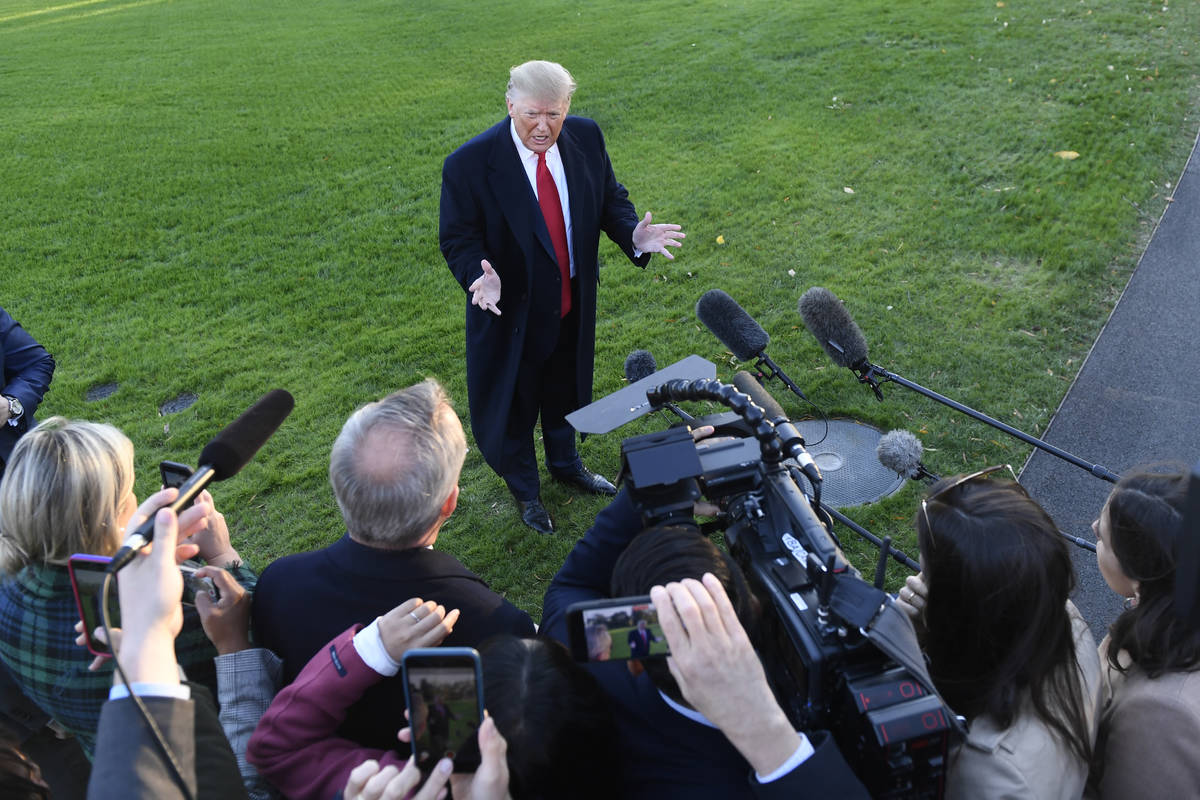EDITORIAL: Trump did right on economy, judges, foreign policy

President Donald Trump leaves office this week, his legacy forever tarnished by the riot at the U.S. Capitol on Jan. 6. But a full and fair accounting of his four years in the White House should acknowledge his achievements along with the unacceptable events of the past few weeks.
Mr. Trump’s record on the economy was impressive by any standards. He guided the first major overhaul of the tax code in more than three decades through Congress, allowing Americans of all incomes to keep more of their own hard-earned money. Coupled with his push to slash the bureaucratic red tape that hinders entrepreneurship and economic growth, that helped trigger a record jobs boom. The Trump years — pre-pandemic, of course — saw unemployment numbers at historic lows for African Americans, Hispanics and those without high school diplomas.
It would be nice if President-elect Joe Biden took notice of his predecessor’s accomplishments in that regard. But don’t count on it. Mr. Biden, through the selection of his economic team, has tacitly announced that he favors a return to the Obama-era “new normal” of stagnant growth brought on by oppressive regulation and an insatiable beltway bureaucracy. A Democratic Congress won’t help. Imagine thinking it’s a good idea right now — with tens of thousands of U.S. businesses teetering on the brink thanks to coronavirus restrictions — to increase the federal minimum wage to $15 an hour.
In addition to the economy, Mr. Trump nominated, and the GOP Senate approved, more than 200 judges for the federal bench. The president favored nominees with a healthy respect for our constitutional principles who will stand as a bulwark against the progressive notion that there are few, if any, limits to the power of the federal government. The ramifications of this will be felt for generations.
On the foreign policy front, Mr. Trump’s refusal to engage in the normal diplomatic niceties shocked many NATO countries into upping their financial contributions to their own defense. He put China on notice that he recognized its dangers to U.S. interests and would not simply roll over on contentious issues such as trade. He also acted where virtually all of his predecessors had preferred lip service by moving the American Embassy in Israel to Jerusalem and then brokering historic peace agreements — which many critics argued could never be done — between the Jewish state and several Middle Eastern nations. ISIS is all but dead.
There will be plenty of time for historians to issue a sober evaluation of the past four years. No doubt the waning days of the Trump White House will be dominant in those accounts. But it would be a disservice to ignore Mr. Trump’s many successes, which are as much a part of the historical record as are his flaws.